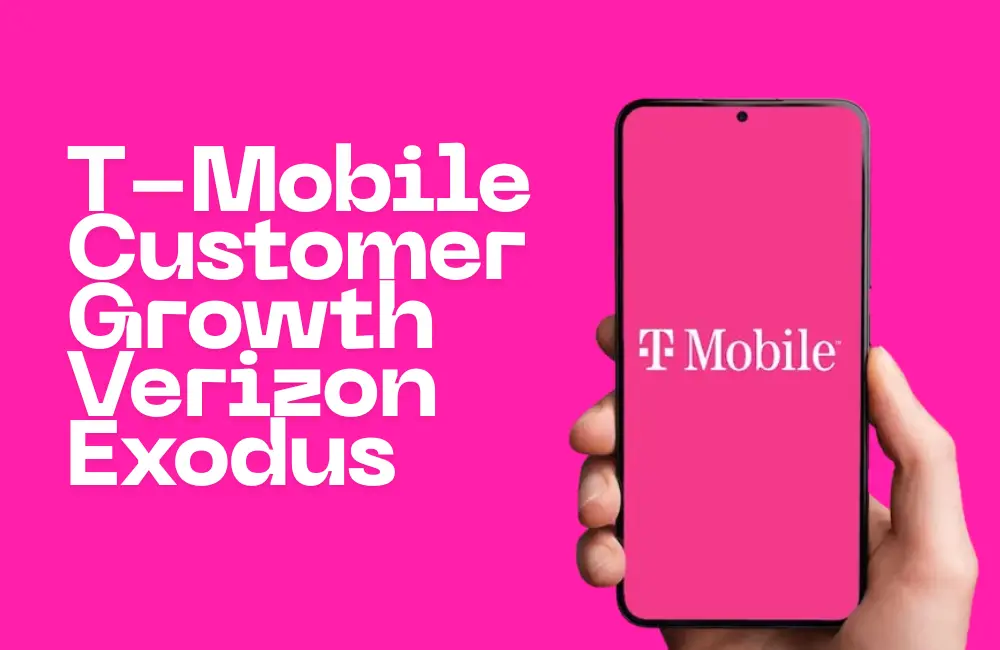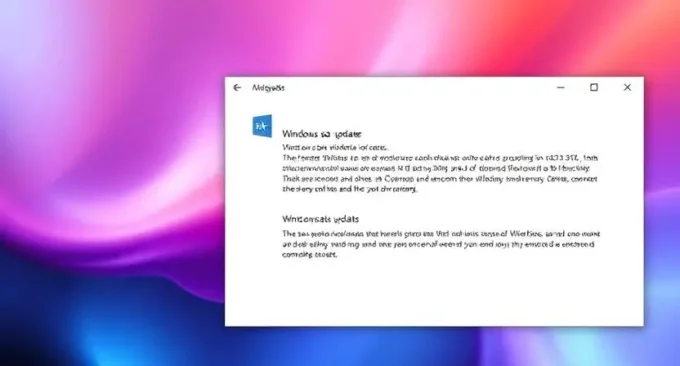We’re discussing t-mobile customer growth verizon exodus today. Learn how the record number of Verizon customers switching carriers is speeding up T-Mobile’s network advances.
Introduction
T-mobile customer growth verizon exodus reported a significant increase in user growth during the most recent fiscal quarter, further solidifying its position as a leading force in the wireless sector. With significant churn experienced by incumbent carriers like Verizon, T-Mobile’s aggressive pricing, network expansion, and customer incentive strategies have been incredibly successful in drawing in a large number of new customers.
Over 800,000 postpaid phone users were added by T-Mobile, surpassing Wall Street forecasts and surpassing both Verizon and AT&T, according to Q2 earnings reports. Additionally, the business reported a churn rate of only 0.77%, which is the best in the market and indicates high client retention. In the meantime, Verizon announced a net loss of more than 250,000 postpaid phone users, indicating a dramatic change in the telecom industry’s customer loyalty.
The Reasons Behind Verizon Customers’ Departures in Droves
There are multiple contributing factors to Verizon’s decline:
- Premium pricing without proportionate value: When compared to other plans, customers increasingly think Verizon’s rates are too expensive.
- Limited innovation in the customer experience: T-Mobile has made significant investments in technologically advanced solutions, such as streamlined onboarding and AI-based assistance.
- 5G rollout stagnation: T-Mobile’s nationwide mid-band 5G coverage has outperformed Verizon’s 5G Ultra Wideband coverage in terms of availability, despite significant investment.
Paying high fees for old services no longer pleases customers. The main reasons given by many for leaving Verizon include poor customer service, erratic coverage, and slow broadband rates. On the other hand, even in rural areas where competition has historically lagged, T-Mobile continues to provide high-performance connectivity with nationwide availability.
The 5G Network of T-Mobile Customer Growth Verizon Exodus: A Key Factor in Growth
T-mobile customer growth verizon exodus 5G strategy is a prime example of innovative, forward-thinking telecom. T-Mobile received a wealth of mid-band spectrum from the acquisition of Sprint, which has been used to roll out incredibly fast and dependable 5G coverage over large areas of the United States.
- T-Mobile’s 5G network is currently available to over 330 million users, with over 300 million of them getting high-capacity mid-band 5G service.
- T-Mobile is regularly ranked as the fastest and most accessible 5G provider in the United States by independent benchmarking companies like Ookla and OpenSignal.
- In major cities like Los Angeles, New York City, and Chicago, the network provides speeds that are up to four times quicker than Verizon.
In addition to improving user experience, these infrastructure upgrades have set the stage for T-Mobile to become a leader in enterprise solutions including fixed wireless broadband, private 5G networks, and the Internet of Things.
Value-Rich Plans and Competitive Pricing
T-Mobile prioritizes customer value in its pricing strategy. With plans that consist of:
- There are no hidden fees or taxes.
- Many bundles include MLB.TV, Netflix, or Apple TV+.
- Unlimited data roaming and international texting
- No activation fees or contracts
These value-added services stand in stark contrast to Verizon’s business model, where benefits frequently call for additional fees or premium tiers. T-Mobile’s “Un-carrier” strategy is a methodical approach that directly addresses long-standing customer dissatisfaction with traditional carriers; it is not merely a marketing ploy.
Results-Driven Customer Service of T-Mobile Customer Growth Verizon Exodus
Support in the telecom sector has been transformed by t-mobile customer growth verizon exodus Team of Experts customer care concept. The business has greatly lowered average resolution times and raised customer satisfaction by substituting devoted teams of actual people for impersonal call centers.
- According to J.D. Power, T-Mobile routinely ranks first among all major wireless providers in terms of customer care satisfaction.
- Verizon has yet to meet the criteria of having an average wait time of less than 60 seconds to talk with a live representative.
This personalized, hands-on support experience helps to reduce churn and strengthens loyalty, particularly among legacy carrier defectors.
T-Mobile Customer Growth Verizon Exodus Business Solutions Increases Market Capability
T-Mobile’s business and enterprise products are another factor driving the company’s expansion. With customized solutions for government and small-to-medium-sized business (SMEs) customers, T-Mobile has become a significant force in this once Verizon-dominated market.
- Over 10 million business lines are currently served by T-Mobile for Business.
- The company provides economically priced, scalable solutions for remote work, fleet management, IoT sensors, and secure communication.
- Collaborations with prominent technology companies such as Cisco, Dell, and Ericsson have enhanced T-Mobile’s attractiveness to businesses.
As remote field operations and hybrid work become more commonplace, this change is particularly significant. t-mobile customer growth verizon exodus is becoming the preferred carrier for contemporary business requirements because to its flexible options.
Home Internet is being disrupted by fixed wireless access (FWA).
T-Mobile has further set itself apart with its Home Internet service. Across the United States, the 5G-powered Fixed Wireless Access (FWA) technology is rapidly gaining traction, especially in rural and underserved areas.
- T-Mobile Home Internet currently serves more than 5 million households.
- Average speeds are competitive with many cable providers, ranging from 100 to 300 Mbps.
- Simple self-installation kits, no data caps, and no equipment rental costs.
On the other hand, Verizon’s Fios network is still geographically constrained, and because of infrastructural limitations, its 5G Home service has not expanded as successfully. T-Mobile is positioned as a future leader in broadband alternatives thanks to its aggressive expansion of FWA.
Market advantage is fueled by mergers and acquisitions.
Spectrum wasn’t the only factor in the Sprint merger. Along with eliminating a significant rival, it strengthened T-Mobile’s position as a strong third pillar in the US wireless market, joining AT&T and Verizon. Additionally, T-Mobile’s portfolio of media and consumer services has expanded thanks to smaller acquisitions like Layer3 TV and Mint Mobile.
- While keeping churn low, these calculated actions have contributed to an increase in average revenue per user (ARPU).
- T-Mobile has expanded its range of products without weakening its brand identity by combining platforms and brands that compliment one another.
T-Mobile Customer Growth Verizon Exodus Prospects for the Future: Domination in a Changing Market
T-mobile customer growth verizon exodus is establishing itself as a technology-first telecoms powerhouse, not just a carrier, with continuous investments in AI-based analytics, 5G innovation, and user experience.
According to analysts, T-Mobile may:
- By 2026, surpass 150 million subscribers overall.
- Reach more than 10 million households with fixed wireless.
- Increase revenue by double digits a year by providing a variety of services.
Rebuilding consumer trust, making investments in mid-band 5G, and redefining its value offer in a highly competitive market are all difficult tasks for Verizon.
FAQs
Q1: Why is Verizon losing so many customers?
A lot of consumers are being turned off by expensive charges, inconsistent service, and inadequate customer assistance.
Q2: Is Verizon’s 5G truly inferior to T-Mobile’s?
A: Yes, in a lot of places. In terms of mid-band 5G performance and coverage, T-Mobile is in the lead.
Q3: Describe the Un-carrier plan.
A: It’s T-Mobile’s strategy to prioritize customer-first benefits over more conventional carrier practices like contracts and overage penalties.
Q4: Does my Verizon contract get paid off by T-Mobile?
A: Indeed! T-Mobile will pay for device balances or early termination costs when you switch during specific promotions.
Q5: How well does T-Mobile cover rural areas?
A: It’s rapidly getting better. In certain rural areas, Verizon still has the advantage, but T-Mobile’s 5G rollout is closing the gap.
Conclusion
There is a seismic shift occurring in the telecom business, and t-mobile customer growth verizon exodus is at the core of it. It is evident that the “Un-carrier” is gaining ground as millions of customers abandon Verizon. T-Mobile has not only upended the status quo but also reshaped what wireless service should look like in 2025 and beyond with its outstanding 5G coverage, outstanding value, and customer-focused service.















Leave a comment